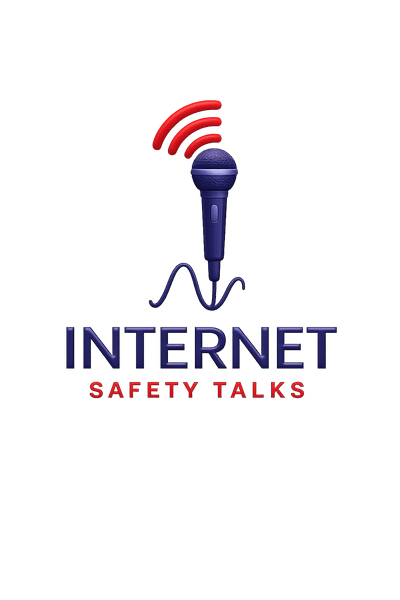Online Shopping on VPN is safer

Why you Use VPN?
Cashless Payments means more and more online spend
Contactless payments have come of age, the cashless society gets closer and closer with shops refusing to handle cash during COVID19 lockdown and many shops will go cashless from now on. Using your phone to shop online and in-person is the new norm. Banks wish that cash would disappear, it costs a fortune to provide customers with cash and threatens staff safety. Online payment is convenient, yet we the public do almost nothing to secure our device safety online.
Cybercrime was reported at record levels in 2019. Interpol and London’s serious fraud squad continue to be staggered at how little attention people are paying to this modern-day menace, online crime. Banks, Shops, Airlines have expressly said they won’t refund you for your mistakes, those days are over. 85% of the public don’t bother backing up, installing any kind of online security or securing their devices with proper passwords
Thanks to our friends on London serious crime squad
Firstly thanks to London Serious Crime Officer in Chris White for his usual observations.
- The Police say people take very little care of themselves or their money online.
- Most people don’t even use basic security for social media profiles, People have no online protection on their devices either for themselves or children.
- Finally, most of us, don’t use proper secure passwords either.
Most Banks have introduced higher security levels for customers, this allows them to say that we did everything we could, yet you still managed to lose your money. It’s about their security, not ours. Since 2019 most Banks, especially HSBC, AIB have increased security levels for customers Bank accounts.
Every year in survey after survey, Americans claim to be more concerned about cyber attacks than their children being beaten up in school, but when asked what online protection they use, nearly 80% say they use nothing. Now with social distancing in place, shops worldwide refusing cash for fear of contagion, the cashless society has come of age, people may start taking this issue more seriously. But we doubt it. People should use anti-virus, home office, family protection software with VPN on phones and all devices. This is as important to their safety as closing your front door.
Millions of us think that Facebook, Apple, Amazon, Samsung, Microsoft look after online security automatically for us, they don’t. Why would they!
iPhone, Macbook users especially feel mistakenly that Apple is especially safe. When nobody used Apple (before 2006), it wasn’t worth the effort for the criminals.
RUNNING YOUR SECURITY
Keep a clean machine. Before shopping and buying. Be sure that all internet-connected devices ‒ including PCs, smartphones and tablets ‒ are free from malware and infections by running only the most current versions of software and apps.
WIFI and VPN
Use secure Wi-Fi. Using public Wi-Fi to shop online while at your favourite coffee shop is handy, but it is not safe at all. Don’t make purchases via public Wi-Fi; instead, use a Virtual Private Network (VPN) or your phone as a hotspot. Lock Down Your Login. Create long and unique passphrases for all accounts and use multifactor authentication (MFA) wherever possible. MFA will fortify your online accounts by enabling the strongest authentication tools available, such as biometrics or a unique one-time code sent to your phone or mobile device.
Apple, Google, Microsoft care. Really!
Apple, Google, Microsoft don’t care about you, just your money, and how they can get their hands on it.
TOP CYBER SHOPPING TIPS

Tip No.1 Think before you click.
During heavy shopping times, there is a huge increase in the number of ads encouraging users to click on links. If you receive a great offer, do not click on the link. Instead, go directly to the company’s website to verify the offer is legitimate.
Tip No.2 Do your Homework
Before making a purchase, read reviews to hear what others say about the merchant. Also, look for a physical location and any customer service information. It’s also a good idea to call the merchant to confirm that they are legitimate. Consider your payment options. Using a credit card is much better than using a debit card; there are more consumer protections for credit cards if something goes awry. Or, you can use a third-party payment service instead of your credit card. There are many services you can use to pay for purchases – like Google Pay, PayPal, Apple Pay without giving the merchant your credit card information directly.
Tip No.3 Watch what you give away.
Be alert to the kinds of information being collected to complete your transaction. If the merchant is requesting more data than you feel comfortable sharing, cancel the transaction. If the account autosaves it after the purchase goes in and delete the stored payment details.
Tip No.4 Use VPN to win.

Many Vendors have different prices for the same item internationally, use your VPN tools to change your location and check the prices internationally, airline fares, holidays, clothes are famous for this sort of price gauging. Luxury items are often cheaper in the home market than they are internationally.
Shopping internationally using VPN is one of VPN greatest benefits.
Tip No.5 Check the Bank
Keep tabs on your bank and credit card statements. Be sure to continuously check your accounts for any unauthorised activity. Good record keeping goes hand-in-hand with managing your cybersecurity. Another tip for monitoring activity is to set up alerts so that if your credit card is used, you will receive an email or text message with the transaction details.
Tip No.6 Hold onto your card
Don’t let Bars, Restaurants, Clubs hold onto your card when out. Swipe it, then hold onto it until you need to pay. Putting your card behind the bar is so 1980s.
Tip No.7 Don’t overindulge online!
Young adults especially really enjoy shopping online and inclined to overspend, with many regarding it as an activity, not a convenience intended to save time. All the experts recommend shopping when feeling alert, energetic, fresh. Don’t shop online when tired, emotional or drunk. Facebook and larger e-stores can tell when you are tired and might be more easily lured into a large discretionary purchase.
If you have returned to the shop several times one evening, your reaction times are slowing down, which they can tell, they might force your hand with a big offer. That’s modern shopping and they put a lot of effort into this using the latest technology.
Here are some of the option for online protection on this site
VPNs
AVG Secure
Freedome VPN
Home Office & Family Protection
AVG Ultimate
Bitdefender
F Secure SAFE




